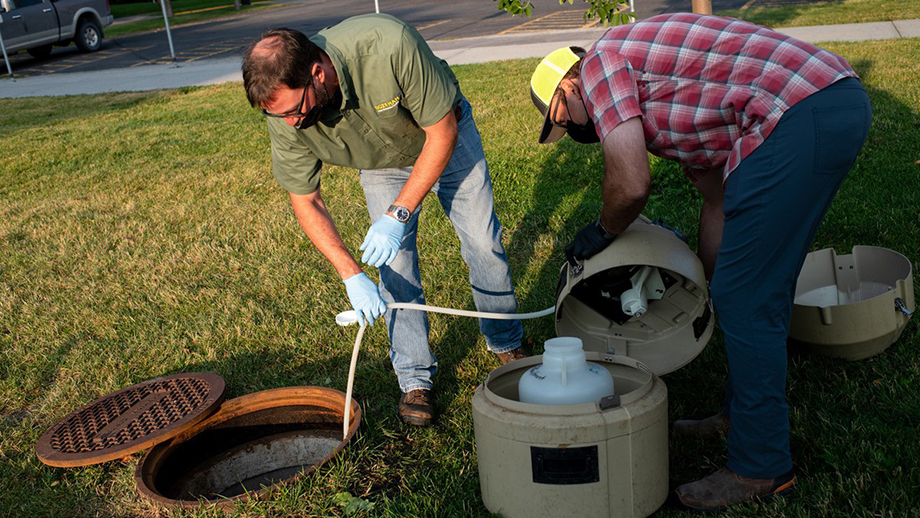A few highlights from around the web that made it into our feeds this week.
The ethics of pausing a vaccine trial in the midst of a pandemic: a conversation with Ruth Faden
Ken Olive, PhD, researcher and head of the lab that focuses on translational research and pancreatic cancer, tweeted earlier this week: “Re. the paused AstraZeneca vaccine trial, my immediate reaction is comfort. That they are pausing for a single adverse event tells me that every precaution is being taken and that safety is the guiding principle. As it should be. Even in a pandemic. Especially in a pandemic.”
The sentiment of his tweet is discussed in detail in this article, plus much more about how vaccine trials work. A good read about what you need to know of Covid vaccine development. (From npr.org)
Missed Vaccines, Skipped Colonoscopies: Preventive Care Plummets
Preventative healthcare took a nosedive as the pandemic hit. That drop was expected as cases surged in New York and elsewhere, but avoidance of routine and preventative care has shown no sign of abating. Alarmingly, mammograms, colonoscopies, and vaccinations are seeing the greatest decline. Without a rebound to baseline, will we see larger future outbreaks of preventable disease or more cases of advanced cancer? Take this as a reminder to get the preventative care checks you need. (From nytimes.com)
Sewers Are Now a COVID-19 Early-Warning System
A slew of evidence suggests wastewater testing for Covid-19 may be the only available real-time indicator of community spread. Now, microbiologists and immunologists sampling wastewater—which includes water from showers, toilets, sinks, and laundry machines—have joined task forces across the country to provide a daily snapshot of community infection. Wastewater can’t provide specific data on infection rates but is able to show trends moving up or downward day by day, an incredibly valuable data point. This article takes a quick dip into the sewer with the scientist in Montana who started this work. Don’t miss it. (From theatlantic.com)
And finally, some fiction that feels very of the moment—
The Lottery
by Shirley Jackson
Jackson’s story was published in the New Yorker in 1948 but it feels as though it could have been 2020. If you haven’t read it, the story opens on a beautiful summer day in a New England town where everyone has gathered for their annual lottery event. The initial playfulness reveals something most sinister. The theme is shocking yet familiar as she illustrates the weight of systemic cruelty with a story you’ll likely never forget.
Also check out:
- What We’re Reading: 09/04/20
- What We’re Reading: 08/28/20
- What We’re Reading: 08/21/20
- What We’re Reading: 08/14/20
- What We’re Reading: 08/07/20
- What We’re Reading: 07/24/20
- What We’re Reading: 07/10/20
- What We’re Reading: 06/26/20
- What We’re Reading: 06/19/20
- What We’re Reading: 06/12/20
- What We’re Reading: 06/05/20
- What We’re Reading: 05/29/20
- What We’re Reading: 05/22/20
- What We’re Reading: 05/15/20
- What We’re Reading: 05/08/20
- What We’re Reading: 05/01/20
- What We’re Reading: 04/24/20
- What We’re Reading: 04/17/20
- What We’re Reading: 04/10/20
- What We’re Reading: 04/03/20
- What We’re Reading: 03/27/20
- What We’re Reading: 03/20/20
- What We’re Reading: 02/28/20
- What We’re Reading: 02/21/20
- What We’re Reading: 02/14/20
- What We’re Reading: 01/31/20
- What We’re Reading: 01/24/20
- What We’re Reading: 01/17/20
- What We’re Reading: 01/10/20
- What We’re Reading: 12/20/19
- What We’re Reading: 12/13/19
- What We’re Reading: 11/22/19
- What We’re Reading: 11/15/19
- What We’re Reading: 11/08/19
- What We’re Reading: 11/01/19
- What We’re Reading: 10/25/19
- What We’re Reading: 10/18/19
- What We’re Reading: 10/11/19
- What We’re Reading: 10/04/19
- What We’re Reading: 09/27/19
- What We’re Reading: 09/20/19
- What We’re Reading: 09/13/19
- What We’re Reading: 09/06/19
- What We’re Reading: 08/30/19
- What We’re Reading: 08/19/19

